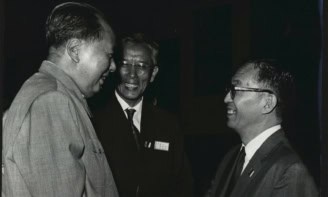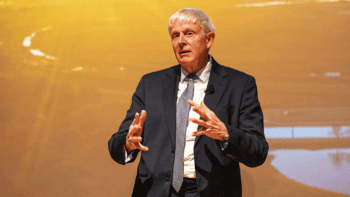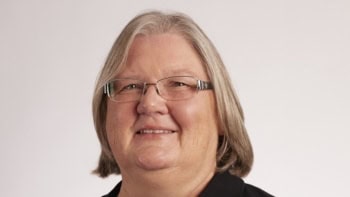America must boost its investment in particle physics if it is to stay at the forefront of the discipline. That is the conclusion of a National Academy of Sciences panel charged with recommending priorities for US particle physics over the next 15 years. The panel believes that the "intellectual centre of gravity" within the field is moving abroad and that, as things stand, within a few years most American experimental particle physicists will be working at facilities overseas.
The Committee on Elementary Particle Physics in the 21st Century says that America’s top priority in particle physics should be to continue its active participation in the Large Hadron Collider, which is currently being built at CERN in Switzerland. As its next priority, the US should aim to become the world’s leading centre for the development of the next huge particle machine, the International Linear Collider (ILC), which is due to come online in around 2015.
According to the committee, which was chaired by economist and former Princeton University president Harold Shapiro, the US should significantly expand its investment on R&D in the collider, to between $300m and $500m over the next five years. The panel also asserts that the US should put forward an aggressive bid to host the ILC, and strongly implies that Fermilab should be the host. Shapiro notes that Fermilab has the infrastructure needed to host the ILC and that it will shortly become the only large laboratory left in the country that is devoted exclusively to particle physics.
“The science on the horizon is very exciting,” say Shapiro. “But the US programme in particle physics, unlike those in Europe or Japan, is at a moment when decisions must be made about its strategic direction. It requires those in charge to take some thoughtful risks and make some thoughtful investments if they are to sustain the programme.”
Unusually, the panel consisted not only of particle and accelerator physicists but also other types of physicists, biologists, industrialists and policy experts. Many of the members of the committee were previously unaware of what the committee calls the “challenge” facing the US in the field.
Since the huge Superconducting Super Collider was axed in the early 1990s, the US programme has lacked focus, says the committee in its report, which was released late last month. Europe currently invests about twice as much in the subject as the US.
The committee also says that an increased share of the US particle-physics budget should be spent on science at the interface with astrophysics and cosmology, in particular the direct detection of dark matter in terrestrial laboratories, precision measurements of the polarization of the cosmic microwave background, and measurement of dark energy’s key properties.
In addition, Shapiro’s panel recommends a coordinated international programme of experiments to determine the properties of neutrinos, and also suggests participation in “inexpensive, small-scale, high-precision” experiments to study physics beyond the Standard Model.
Given the current US budget deficit, it remains to be seen whether America can afford to carry out the committee’s recommendations. Shapiro, however, is in no doubt of the importance of doing so. “For a nation the size and wealth of ours, it is important to take leadership,” he says.



